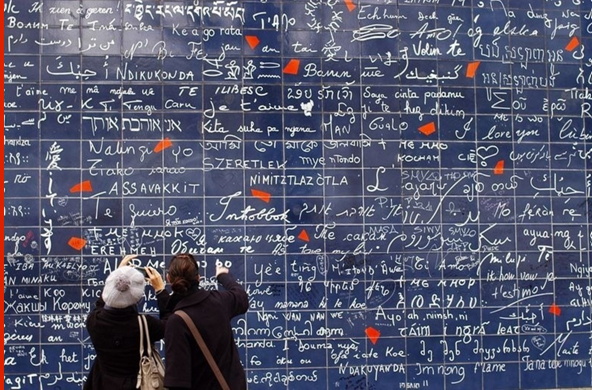
Last Sunday in introducing the lighting of the Candle of Love, I said that for me this third candle of the advent season comes closest to the heart of Christmas … and that’s because Christmas has to do with the heart, and the heart has to do with love, and love has to do with all the ways we are connected to each other and to everything that is.
Just as we use the word “gravity” to speak of that everywhere-present, invisible power by which all material things pull on each other and are attracted to each other, so, too, “love” is our primary English word for addressing the invisible emotional and spiritual ties that link us together with all that is.
Our English word “love,” of course, covers a vast amount of territory. We profess our love to God, country, mother, father, spouse, partner, children, pets, mountains, trees, flowers, sports teams, money, etc. Our feeling connection – our heart connection – to virtually anything and everything can be covered by this single word “love.”
Now, this may indicate a certain impoverishment and clumsiness in our English language – I have argued as much – for in other languages there are often a number of different words distinguishing the qualities of the different “love” connections and relationships.
I’ve read, for example, that Sanskrit has ninety-six different words for “love” – ninety-six different words that differentiate the “feeling nuances” of our various relationships and connections. As such, one’s “love” for the gods, the goddesses; for mother, father, sister, brother, child, lover, money – each would have its own specific word addressing the unique quality of that particular connection and relationship.
Yet, in defense of the English language, and in defense of love and our use of the word “love,” there is also a place where all the different types of “love” meet, and where it is appropriate to use the word “love” to speak of our connection to all manner of things. The particular types of connections vary enormously, but underneath we are all connected – all part of “one great love,” as we say.
Thus, our English word “love” points to and is a way of speaking about the fundamental unity that underlies all the different kinds of love. We may not always nuance the variations well, but we do catch the universal note of connection. And that’s what I like to think is what we primarily raise up and celebrate in this festive season!
Bruce Bode
